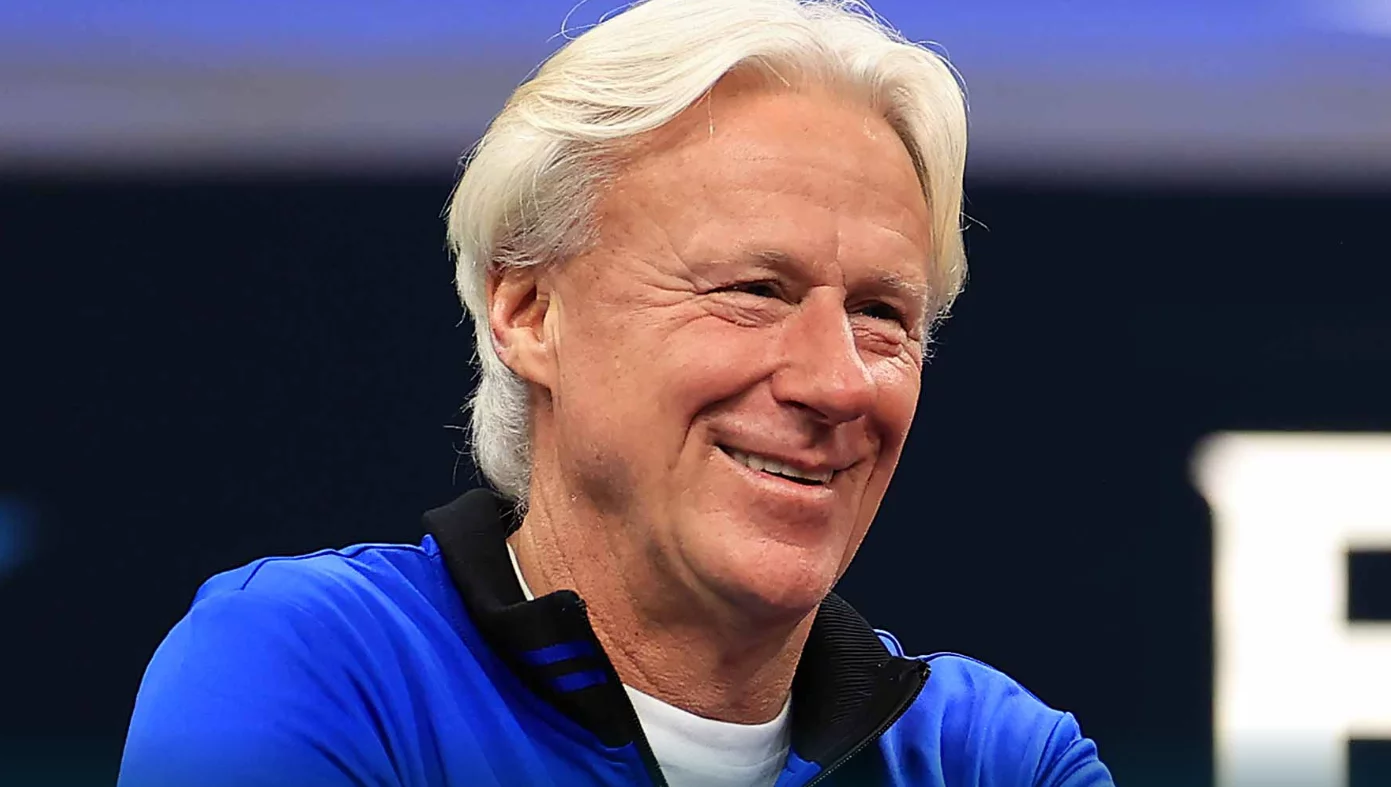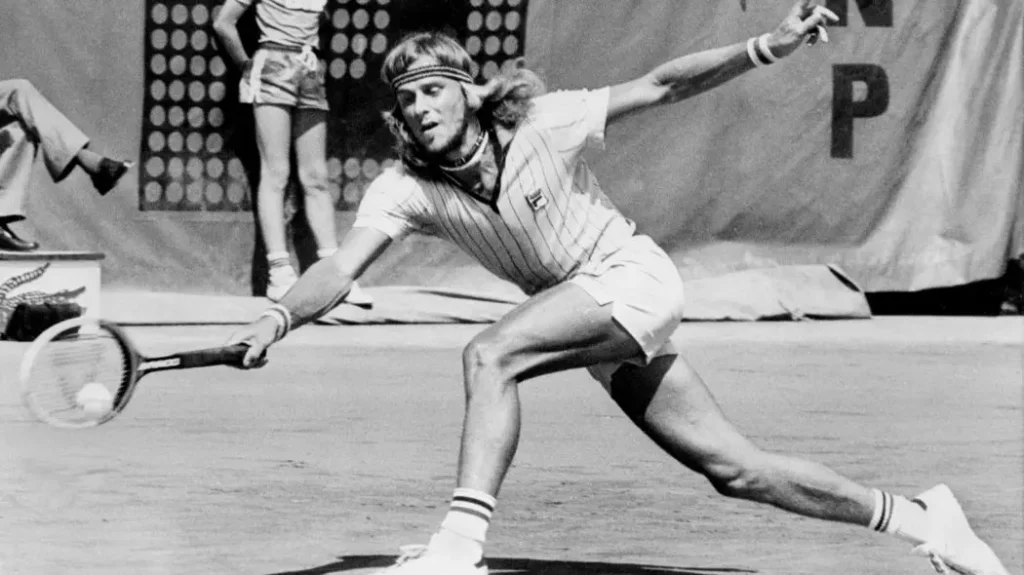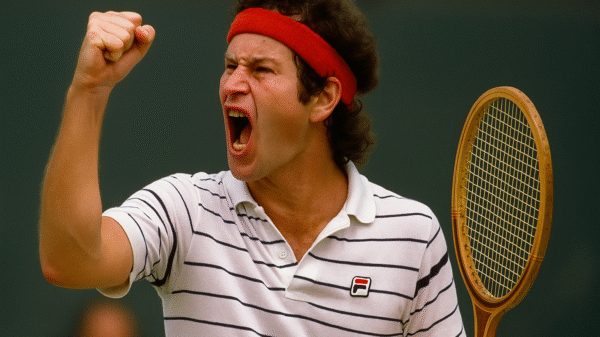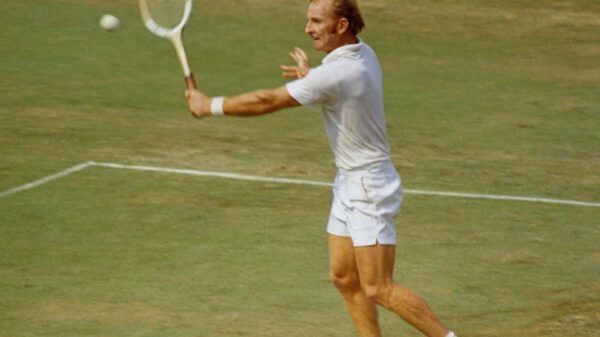Björn Borg is one of the most legendary names in tennis history, known for his powerful baseline game, unmatched mental fortitude, and a career that sparked a global phenomenon. As a Swedish tennis player who became a symbol of elegance and resilience on the court, Borg’s career is a story of tenacity, groundbreaking achievements, and inspiration for generations. This article delves into Borg’s life, his impact on tennis, and the legacy he has built that continues to influence the sport today.
Table of Contents
Early Life and Introduction to Tennis
Björn Rune Borg was born on June 6, 1956, in Södertälje, Sweden. From a young age, Borg displayed an unusual affinity for sports. However, it was his father’s gift of a tennis racket, when Borg was just nine years old, that set him on a path to greatness. He quickly became known for his unique blend of agility, endurance, and an almost meditative focus—traits that would become defining aspects of his playstyle.
By the age of 15, Borg was making headlines. His performance on the junior circuit demonstrated his potential to compete at the professional level. Borg’s rise in Swedish and international tennis was rapid, and he quickly became a star known for his aggressive baseline play and extraordinary composure on the court.
The Playing Style That Defined an Era
Borg’s style was distinct and revolutionary for the 1970s. Known for his heavy topspin forehand and two-handed backhand, Borg’s game contrasted with the serve-and-volley style popular among his peers. His strength lay in his ability to outlast opponents with relentless baseline rallies, a skill honed through intense physical training and mental discipline.
The two-handed backhand became Borg’s signature move, setting him apart from players who relied on one-handed shots. This adaptation gave Borg greater control, especially on clay courts, and allowed him to play with more power and consistency. His backhand became a weapon that helped him dominate against top players, especially in prolonged rallies that often turned into mental battles as much as physical ones.
Rise to Fame and Wimbledon Dominance
Björn Borg’s journey to tennis superstardom began in earnest in the mid-1970s. He achieved his first significant victory in 1974 by winning the French Open at just 18 years old. However, it was his remarkable success at Wimbledon that cemented his place in the annals of tennis history.
Borg won five consecutive Wimbledon titles from 1976 to 1980, an achievement that remains unprecedented. His victories at Wimbledon not only demonstrated his skill on grass courts—traditionally challenging for baseline players—but also showcased his adaptability, perseverance, and resilience. His rivalry with John McEnroe, particularly the epic 1980 Wimbledon final, is remembered as one of the greatest matches in tennis history. Borg’s calm demeanor was a stark contrast to McEnroe’s fiery temperament, making their clashes all the more compelling.
French Open Triumphs: A Clay Court Maestro
While Wimbledon was Borg’s stage of dominance, he was equally a force to be reckoned with on clay courts. His success at the French Open was unparalleled; he captured six titles on the Parisian clay, establishing himself as one of the greatest clay-court players in history. Borg’s record at the French Open remains a testament to his fitness, focus, and tenacity, as well as his adaptability across different playing surfaces.
The clay surface suited Borg’s patient baseline game, allowing him to employ heavy topspin and outlast opponents in grueling matches. His victories on clay elevated his status as a tennis legend, and he became one of the few players in history to dominate on both grass and clay, showcasing his versatility and mastery over the sport.
Mental Fortitude and Composure: The “Ice Man”
One of Borg’s most remarkable qualities was his mental strength. Known as the “Ice Man” due to his calm demeanor on the court, Borg was almost unbreakable under pressure. His ability to maintain focus in high-stakes matches and silence external distractions became part of his legend. Borg’s psychological resilience was a hallmark of his career, allowing him to endure matches that tested the limits of physical and mental endurance.
This psychological strength was one of the reasons Borg was able to excel in five-set matches and handle the intense atmosphere of grand slam finals. His ability to stay composed, even when facing formidable opponents, made him a fan favorite and inspired generations of players to emulate his mental approach to the game.
Björn Borg’s Rivalry with John McEnroe
The rivalry between Björn Borg and John McEnroe transcended tennis, becoming one of the most iconic sports rivalries of all time. The stark contrast between Borg’s cool composure and McEnroe’s fiery outbursts made their matches unforgettable. The most famous of these was the 1980 Wimbledon final, a five-set thriller that showcased both players’ skills and determination.
The match culminated in a legendary tiebreak, which Borg won 18–16. This encounter highlighted the technical prowess and resilience of both players and remains one of the most-watched matches in tennis history. The Borg-McEnroe rivalry brought unprecedented attention to the sport, elevating tennis to new heights of global popularity.
Early Retirement and Brief Comeback
In 1983, at just 26 years old, Björn Borg shocked the world by announcing his retirement from professional tennis. Citing mental and physical exhaustion, Borg stepped away from the sport while still at the peak of his abilities. His retirement left a void in the tennis world, as fans were left to wonder how many more titles he could have won had he continued playing.
Years later, Borg attempted a comeback in the early 1990s. However, the sport had evolved, and despite his efforts, he was unable to recapture his former dominance. Borg’s brief return, however, did nothing to diminish his legacy; if anything, it reinforced his standing as a pioneer of the modern game.
Legacy and Impact on Modern Tennis
Björn Borg’s influence on tennis endures to this day. His unique style, psychological resilience, and extraordinary achievements inspired a generation of players who would shape the modern game. Players like Rafael Nadal and Novak Djokovic have spoken about Borg’s impact on their careers, citing his mental approach and physical dedication as key influences.
Borg’s legacy also extends to the popularization of tennis globally. His dominance, particularly at Wimbledon, helped transform tennis into an internationally celebrated sport, and his rivalry with McEnroe brought a new level of intensity and drama to the game. Borg’s name remains synonymous with elegance, discipline, and the pursuit of excellence.
Life Beyond Tennis: Business Ventures and Personal Life
Following his retirement, Björn Borg shifted his focus to business, launching his own fashion line. His brand, which specializes in athletic and casual wear, has grown into a successful enterprise that reflects Borg’s style and ethos. Beyond his business pursuits, Borg has largely kept his private life away from the media spotlight, focusing on his family and personal interests.
Though he no longer competes, Borg remains a fixture in the tennis community, often seen attending major tournaments and lending his insights into the modern game. His presence in the sport has never faded, and his contributions to tennis continue to be celebrated by fans and players alike.
Björn Borg’s Lasting Influence on Tennis
Björn Borg’s career remains one of the most influential in tennis history. His approach to the game, both physically and mentally, set new standards and inspired countless players who followed. As a competitor, Borg was unparalleled in his determination, skill, and poise under pressure, and his legacy continues to shape the sport he dominated for so long.
Whether it’s his iconic backhand, his unparalleled success at Wimbledon and the French Open, or his rivalry with John McEnroe, Borg’s contributions to tennis are nothing short of legendary. His influence transcends generations, and he remains a symbol of what it means to be a champion in every sense of the word.














